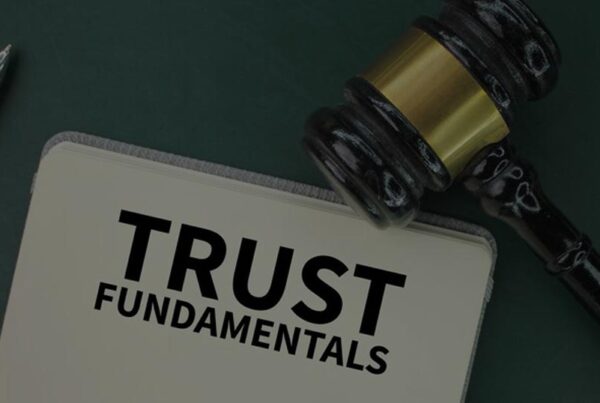WHITE COLLAR CRIMES
Fighting Fraud with the False Claims Act
Originally enacted in 1863 in response to defense contractor fraud during the Civil War, the False Claims Act (FCA), strengthened by a series of amendments, is now one of the government’s most powerful tools to root out fraud involving government funds. Although health care has consistently been the industry with the largest recoveries, the FCA has almost no limit to its reach, drawing defendants from the U.S. Department of Energy, the Federal Housing Administration, the Supplemental Nutrition Assistance Program and even the Department of Defense. In Fiscal Year 2020, the Department of Justice (DOJ) acquired more than $2.2 billion in settlements and judgments from civil cases from defendants charged with fraud and false claims against the government. Although this represents a decrease from FY 2019, the federal government is likely to increase the number of investigations and subsequent proceedings against alleged violators. Rather than easing up in light of this trend, the federal government continues to allocate vast resources to the various agencies charged with fighting fraud—preferring to spend money prosecuting offenders rather than paying fraudulent claims.
The federal government is not the only party to initiate a FCA claim. The FCA includes a qui tam provision, which allows private citizens to file a claim under the FCA on behalf of the government. Private citizens filing suit are called ‘relators,’ or (informally) ‘whistleblowers’ if the relator is an employee of the accused organization. Relators often receive a portion of any damages recovered by the government. Following the 1986 amendments, which substantially increased incentives for whistleblowing, the percentage of annual FCA claims filed by relators began to rise. In every year since 1995, in fact, relators have initiated the majority of all FCA actions filed. In FY 2020, relators filed nearly 73% of all FCA claims and earned over $309 million in reward. The FCA authorizes the DOJ to pay rewards to those who report fraud against the federal government, so long as they are not found guilty of a crime related to the reported fraud. Reward amounts are at least 15% of the amount recovered but can be as much as 30% in certain cases.
What acts are prohibited under the FCA?
To establish liability under the FCA, the government must prove by a preponderance of the evidence that the alleged violator:
- knowingly presented, or caused to be presented, a false claim for payment or approval;
- knowingly made, used, or causes to be made or used, a false statement material to a false claim;
- conspired to commit any violation of the FCA;
- possessed or controlled property or money intended for use by the government and knowingly conveyed less than all the property or money;
- certified receipt of property intended for government use and conveyed the receipt with potentially false information intending to defraud the government;
- knowingly bought or received public property from a government officer or employee or member of the Armed Forces, who is unauthorized to sell or convey the property; or
- knowingly made, used, or caused to be made or used, a false statement material to pay or convey property to the government, or knowingly concealed, avoided or decreased an obligation to pay or convey property to the government.
How are FCA claims filed?
Unlike nearly all other civil actions, FCA complaints are served on the government directly, instead of the defendant. A mere complaint is not enough, however. Relators filing suit must also provide a thorough written account of substantially all material evidence and information related to the alleged violation(s). The complaint is filed in camera (in the judge’s chambers or other private place without spectators) and remains under seal (not a part of the public record) for at least 60 days and is served on the defendant only upon court order. During this time, the DOJ investigates and determines whether to pursue the case.
What are the possible penalties?
Entities and individuals liable for FCA violations face steep civil penalties. The federal government may also target individual defendants who can be criminally prosecuted under related statutes.
Civil Penalties
Civil penalties are set out in §3729(a)(1)(G). Adjusted for inflation, FCA violators currently face a monetary penalty—called a Civil Monetary Penalty (CMP) for healthcare related claims (42 U.S.C. §1320a-7a)—of not less than $11, 665 and not more than $23,331. Violators face an additional penalty equal to 3 times the losses sustained by the government as a consequence of the violation(s)—treble damages. The government also holds violators liable for the costs of litigation.
The federal government assesses penalties, damages and costs on each FCA violation, so the total assessed penalty can be significant and devastating. In addition to these penalties, liable entities and individuals may face exclusion from the federal program(s) in which they participated or may be required to enter into a Corporate Integrity Agreement (CIA). The aggregate impact of these penalties can severely impair, if not ruin a business or an individual’s career.
Criminal Penalties
Individuals liable for violations under the FCA may also face criminal charges under a wide range of related criminal statutes. Many of these statutes are broad in scope, which makes it easier for the federal prosecutors to gather facts sufficient to prove the elements of a given charge. Some of the more common related criminal statutes include:
False claims against the government
18 U.S.C. §287 criminalizes making false claims against the government. Similar to its civil counterpart, §287 targets alleged offenders who knowingly make a false claim to a U.S. Officer or agency. Although §287 does not explicitly define “claim,” the United States Supreme Court has held claim to relate solely to the payment or approval of a claim for money or property. The government does not have to prove that the alleged offender acted with the intent to deceive, nor does the alleged offender have to have submitted the claim directly to a government officer or agency, submitting it through an intermediary will do. Even presenting or cashing a tax refund or stimulus check generated from false information constitutes making a false claim against the government.
18 U.S.C. §1001 criminalizes making false statements to a federal agency. To convict an alleged offender under §1001, a prosecutor must show the alleged offender willfully and knowingly made a false statement concerning a material matter to a department or agency of the United States. It had been long established that a federal court is neither a ‘department,’ nor an ‘agency’ under §1001. This changed, however, with passage of the False Statements Accountability Act of 1996, which amended §1001, broadening the definition of ‘department’ and ‘agency’ to include all three branches of the federal government. The range of prosecutable acts is similarly broad—more complex schemes involving multiple alleged offenders, as well as an individual’s single false response to a question from a border or United States Immigration and Naturalization Service agent during routine inquiries may result in criminal charges.
False statements related to health care matters
Making false statements related to health care matters is prosecuted under 18 U.S.C. §1035(a). U.S. Attorney’s Offices throughout the country have experienced a surge in reports of fraud in the wake of the COVID-19 pandemic. Federal prosecutors have stepped up efforts to target individuals who profit off the pandemic through fraudulent means. §1035(a)’s relatively broad scope provides a very flexible tool for prosecutors. To convict an alleged offender, the government must prove beyond a reasonable doubt the defendant knowingly and willfully falsified, concealed or covered up a material fact through some scheme, or made or used a materially false statement, writing or document in connection with the delivery of or payment for health care benefits, items or services. Although §1035(a) is often used to prosecute large businesses or their managers for comparatively complex schemes of fraud, an individual who simply claimed false symptoms to their doctor to obtain hydroxychloroquine has also been prosecuted.
Offenders convicted under §287 face up to 10 years in prison and fines up to $250,000. Those convicted under §1001 and §1035(a) face up to 5 years in prison.
The list of possible related criminal charges does not end here. Combined with the expansive reach of the FCA, federal prosecutors are increasingly able to match the evolving nature and complexity of fraudulent claim schemes with an equally adaptable body of criminal statutes and case law, continuously bolstering the criminal arm of the federal government’s response to fraud against the government.
White Collar Crimes
Recent Posts






